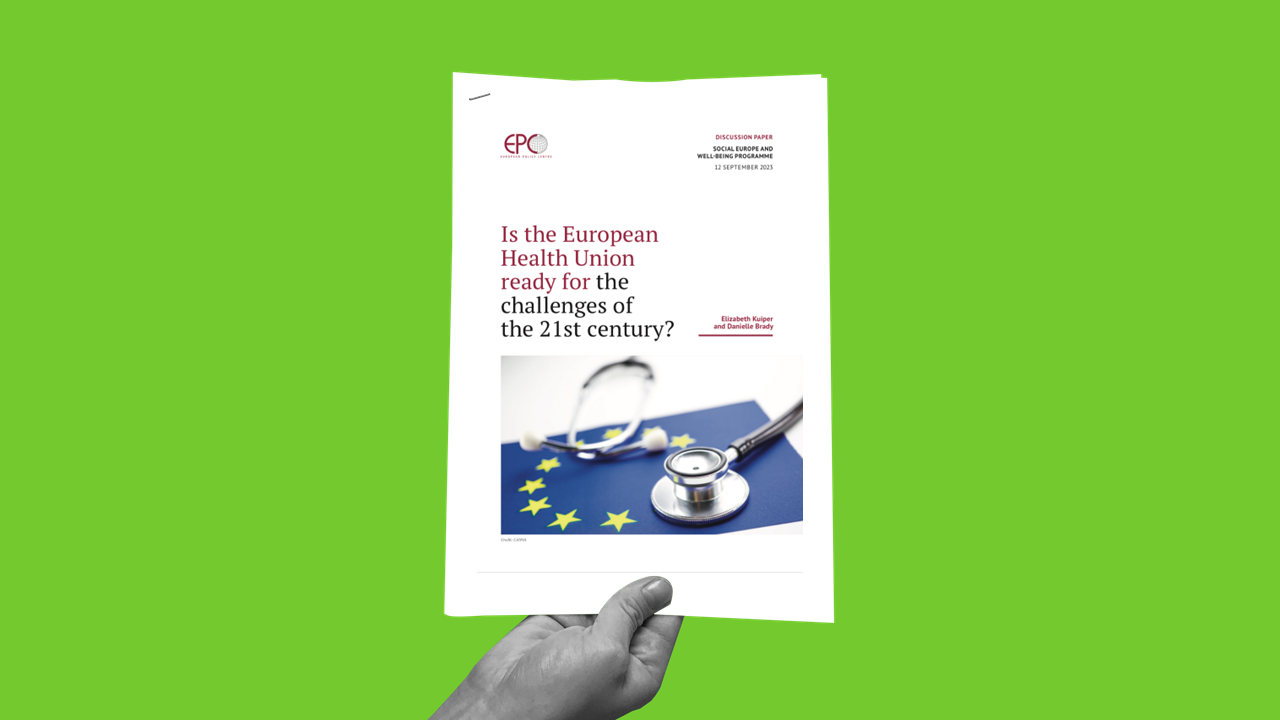Summary
The COVID-19 pandemic laid bare the unpreparedness and structural weaknesses of national health systems while emphasising the disparities in national capabilities among European countries and the lack of a common European approach against cross-border health threats. To enhance the protection of citizens’ health, prevent and prepare for future pandemics, and strengthen the resilience of Europe’s health systems, the European Commission set out its plans for a European Health Union.
As we enter a post-pandemic era, this Discussion Paper assesses the proposals under the European Health Union and sets out recommendations to address the identified shortcomings. The following recommendations build on the discussions of the European Policy Centre’s Task
Force on the European Health Union:
- Adopt a more holistic approach by appointing a Vice President for Well-being.
- Strengthen crisis preparedness by elevating the Health Emergency Preparedness and Response Authority to an agency.
- Promote access and affordability by extending joint procurement.
- Strengthen the European health workforce by tackling shortages and addressing skills gaps.
- Mitigate the cost of inaction by increasing investment in health.
- Ensure planetary health by promoting a Green European Health Union.
- Promote Europe’s status as a global leader in health data by harmonising health data egulations with the European Health Data Space.
- Safeguard the EU’s strategic autonomy by implementing the Versailles Declaration and strengthening supply chain resilience.
- Build on the EU’s Global Health Strategy by exploring global partnerships.
This Discussion Paper builds on the findings of the European Policy Centre’s Task Force on the European Health Union. The multistakeholder Task Force was held under the auspices of the EPC’s Social Europe and Well-being programme with the kind support of Amgen, MSD, Johnson&Johnson, Sitra and EIT Health.
